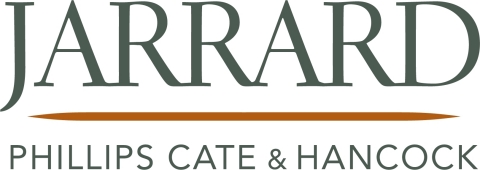Vaccine Fear Is Next COVID-19 Battleground: National Survey
Vaccine Fear Is Next COVID-19 Battleground: National Survey
New national survey forecasts opportunities around vaccination, funding and safety
Some 40 percent of healthcare workers leery of getting vaccinated
BRENTWOOD, Tenn. & CHICAGO--(BUSINESS WIRE)--According to a new survey of American Adults, reluctance to get a COVID-19 vaccine appears to be the next public health battle for healthcare organizations trying to get control over the pandemic.
Just over half of Americans (53 percent) say they are highly likely to get vaccinated, according to the research from healthcare strategic communications firm Jarrard Phillips Cate & Hancock and Public Opinion Strategies, while 17 percent are somewhat likely, 21 percent are not likely and 10 percent say they’re unsure. Among those expressing reservations, top reasons for the skepticism are fears of potential side effects (47 percent) and being infected by the virus from the vaccine (22 percent).
Remarkably, 40 percent of healthcare workers are on the fence or unlikely to get a vaccine when available.
In a unique juxtaposition, healthcare providers continue to enjoy exceptionally high levels of trust from the public, a finding that could potentially be leveraged to help promote vaccination, improve feelings of safety among the public and move towards financial stability.
“This data shows that there is significant need and opportunity to develop vaccination campaigns,” said David Jarrard, CEO of Jarrard Inc. “Before launching any campaigns for the public at large, though, healthcare organizations must build trust first within their own teams to reassure them about the safety of their facilities and the vetting of any vaccination. They must have their physicians and nurses on board since that cohort represents the most trusted faces in healthcare and can be activated as potential ambassadors.”
Key findings of the online survey of 1,101 American adults (credibility interval 3.37 percent), fielded July 31-August 3, 2020, include:
- The war for vaccination looms as the battle for masking wanes. Barely half of Americans – and only 60 percent of healthcare workers – are extremely or highly likely to get vaccinated. Healthcare organizations will have to make tough calls on mandates for employees while also encouraging the public to participate at the appropriate time. Meanwhile, 77 percent of Americans say they always wear a mask.
- Healthcare workers remain fearful and need attention. People working in healthcare or living with someone who does feel less safe seeking in-person care than the general public – an issue that will need careful, steady handling.
- The impact of the novel coronavirus is deep, wide and sustained. One in eight Americans has lost their health insurance coverage, and 78 percent continue to worry they or a family member will contract the virus.
- Providers have a massive trust advantage relative to other institutions – including a 30-point lead on health insurance companies. Some 60 percent of people think providers need more federal funding. Consumers, meanwhile, have embraced providers’ telehealth offerings, reporting high levels of satisfaction with the virtual experience.
Fear of the virus remains widespread with nearly eight in 10 worried they or a loved one will become infected. The public is still concerned about visiting medical facilities – from doctor’s offices to urgent care centers to hospital ERs. Feelings of safety in different healthcare settings range from 5.0 to 5.8 on a 10-point scale, with about one-quarter of those responding with a three or below.
On a positive note, the survey shows that trust in doctors, nurses and hospitals remains remarkably high, outpacing by a wide margin Americans’ trust in other institutions, such as health insurance companies, the media and the government. This advantage can be leveraged in advocacy for additional funding, renegotiating payer contracts and, as noted above, educating and encouraging the public about receiving a vaccine when available.
However, there is a significant caveat when it comes to trust: Healthcare workers are not convinced about safety. The most trusted voices and potentially strongest advocates for provider organizations, these employees rated their feelings of safety in medical settings lower than the general public did. Only 40 percent said they are likely to get vaccinated. Provider organizations must focus internally on relentless, internal safety campaigns to help employees feel comfortable. Otherwise, it will be difficult to allay the public’s fears about getting vaccinated or seeking in-person medical care.
“These findings show that healthcare providers are uniquely positioned to help advance much-needed messages about the future,” Jarrard added. “Providers of all stripes must continue robust safety campaigns to help allay fears about seeking medical care and engaging with healthcare. And, those messages should begin to consider an eventual coronavirus vaccine, including clear discussion about how the organization will evaluate a vaccine and whether it will be required of employees.”
About Jarrard Inc.
With offices in Nashville, Tenn. and Chicago, Jarrard Phillips Cate & Hancock, Inc. is a U.S. top 10 strategic communications consulting firm for the nation’s leading healthcare providers experiencing significant change, challenge or opportunity. Founded in 2006, the firm has worked with more than 500 clients in over 40 states and served as a communications advisor on more than $60 billion in announced M&A and partnership transaction communications. The firm specializes in M&A, change management, issue navigation and strategic positioning, and has recently worked with more than 60 healthcare organizations on communications initiatives revolving around the coronavirus pandemic.
For more information, visit jarrardinc.com or follow us @JarrardInc.
Contacts
Ellis Metz
(865) 805-0090
emetz@jarrardinc.com
